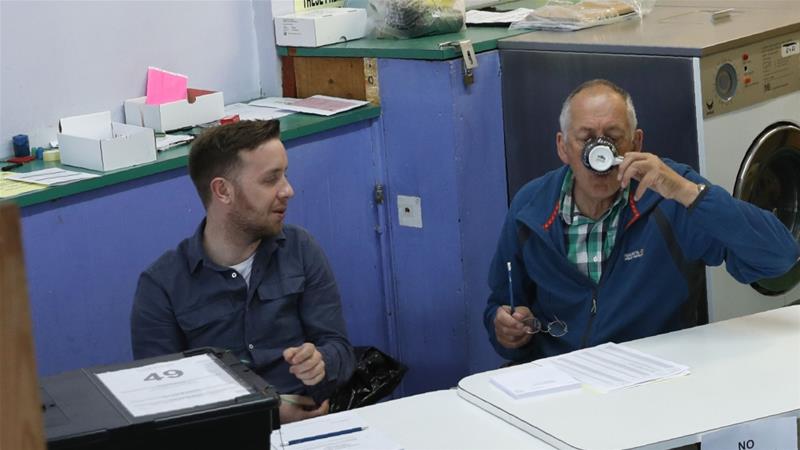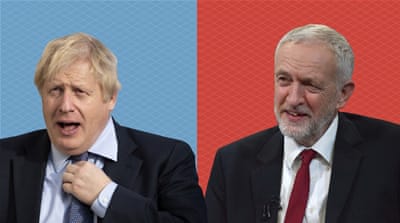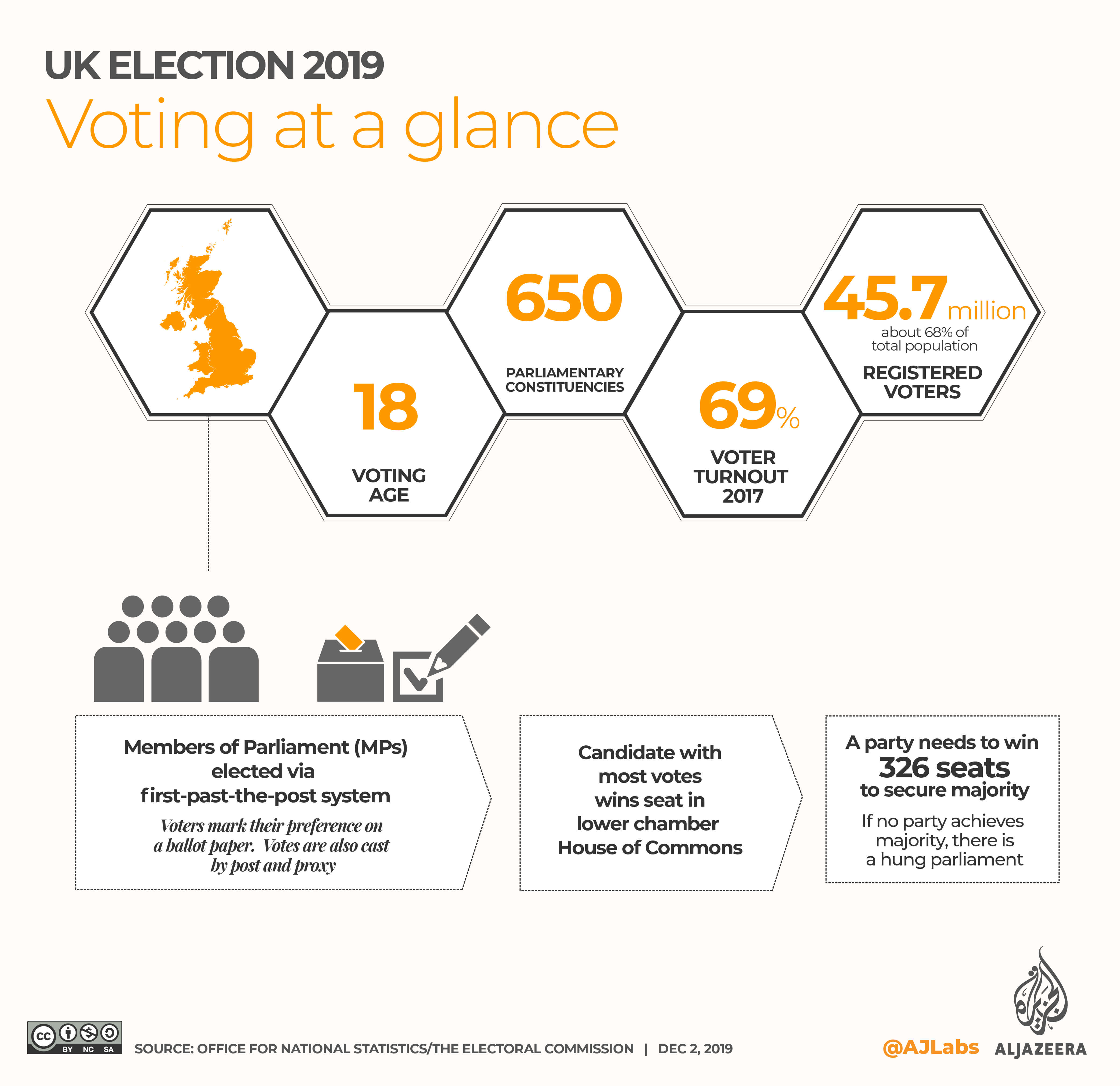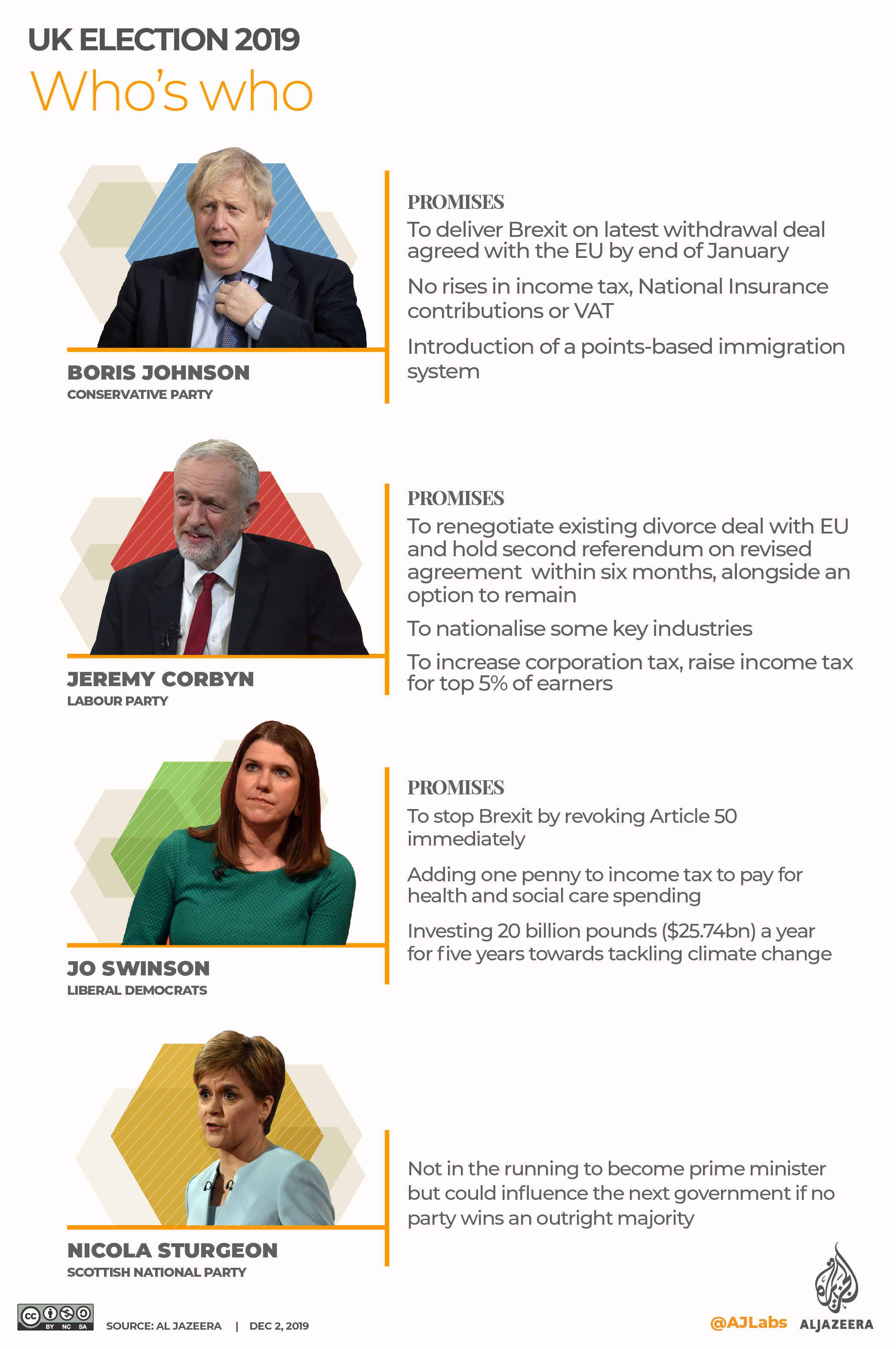Polls open in snap election called by PM Johnson to end months of political impasse over the UK’s bid to exit the EU.

London, United Kingdom – Polls have opened in the United Kingdom‘s snap general election, with millions of voters expected to deliver their verdict on the Brexit crisis engulfing British politics.
Thursday’s ballot will shape how, or whether, the UK will finally exit the European Union after months of parliamentary deadlock over how to execute the result of its 2016 referendum on membership of the bloc.
The vote brings to an end a febrile six-week campaign period during which Prime Minister Boris Johnson‘s Conservative Party and Jeremy Corbyn‘s Labour Party have offered starkly different visions for resolving the impasse and rebuilding the UK after a decade of austerity.
Johnson wants to action a swift exit from the EU, while Corbyn is committed to holding a second referendum over the issue.
Polls close at 10pm local time (22:00 GMT), with final results expected by early Friday morning.
More than 45 million voters are registered to take part, but harsh weather and a general sense of weariness, brought on by a third election since 2015, may hamper turnout.
Voters cool on Corbyn, Johnson
As leaders of the UK’s two largest parties, Johnson, 55, and Corbyn, 70, are clear frontrunners.
But both are unpopular characters among the electorate, with widespread scepticism of either’s leadership credentials.
They are fighting what has been called an “unpopularity contest.”
Public trust in politicians has plunged to the lowest levels on record, with a fractious election build-up erupting in recent days into bitter rows over disinformation and leaks.
Brexit aside, health and social care provision, the unfolding climate crisis and law and order are among voters’ other key concerns, along with the UK’s economy, which flatlined in the three months leading up to October.
Earlier this week, focus turned to the NHS and other public services after an image of a four-year-old boy lying on a pile of coats on the floor of an overcrowded hospital was widely circulated.
Analysts said it remained to be seen whether Britons would vote according to their views on Brexit, above all else.
“We won’t know if it’s the Brexit election until we see the results,” said Anand Menon, director of The UK in a Changing Europe think-tank, citing several pro-Brexit, traditionally Labour-held constituencies as bellwethers.
“The last time [in 2017], for all the talk about Brexit, it was a pretty traditional election where social class was the determining feature for how and why people voted.”
Brexit pledges
Johnson has repeatedly promised to take the UK out of the EU by the end of next month if voters return a majority Conservative government, with his “Get Brexit Done” mantra put front and centre of the party’s pre-election campaigning efforts.
Even if Parliament were to sign off on his withdrawal agreement by that deadline, however, a potentially gruelling negotiation over the UK and EU’s future relationship will begin as the so-called “transition period” comes into effect.
Corbyn has meanwhile pledged a Labour administration would negotiate a softer withdrawal agreement than the one brokered between Johnson and Brussels.
Under Labour’s Brexit plan, the revised deal would be put to a referendum, alongside an option to remain, within six months.
Much of the party’s pre-election messaging focused on the state of public services and its plan for a major shake-up of the economy.
Among the smaller parties, the Scottish National Party is aligned with Labour in supporting a second referendum, so long as remaining in the EU is an option on the ballot paper, while the Liberal Democrats have pledged to revoke Article 50 and cancel Brexit altogether if they win a majority.
In the event no party wins an outright majority, there will be a “hung parliament”. In this scenario, the party with the largest vote share may form a minority government, seek out the support of smaller parties for a “confidence and supply” arrangement, or try to build a formal coalition.
Al-jazeera




